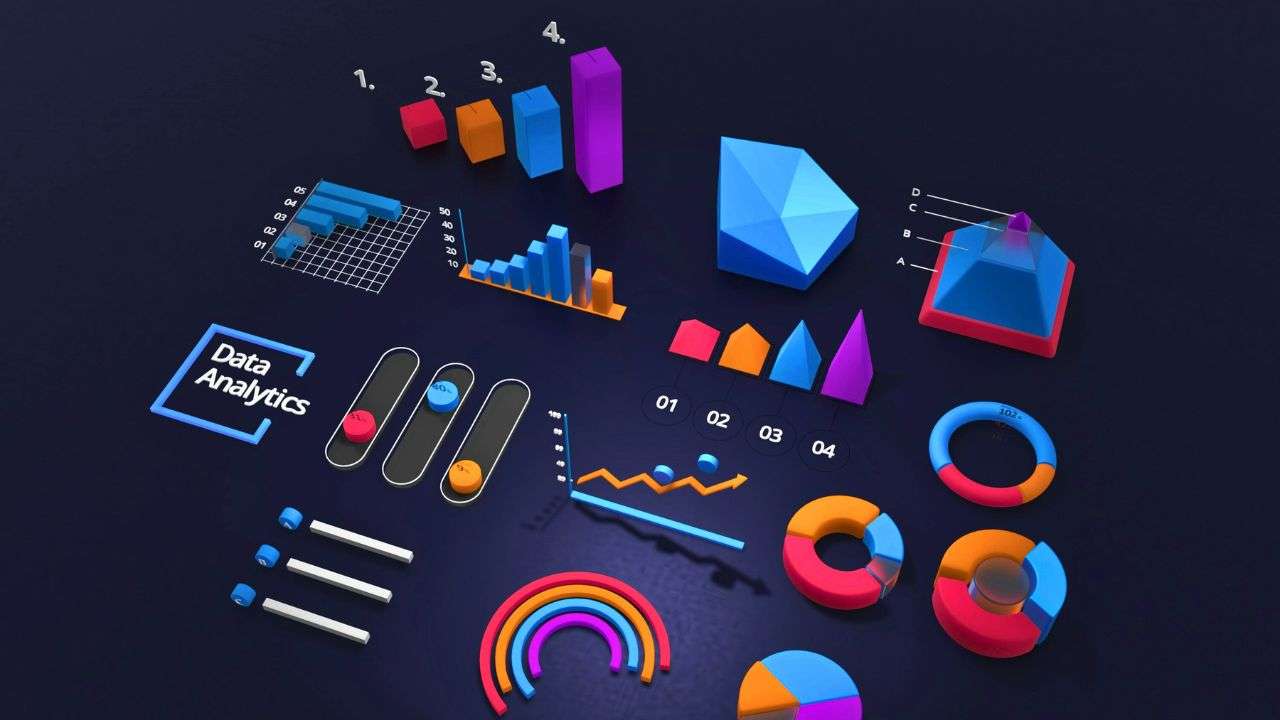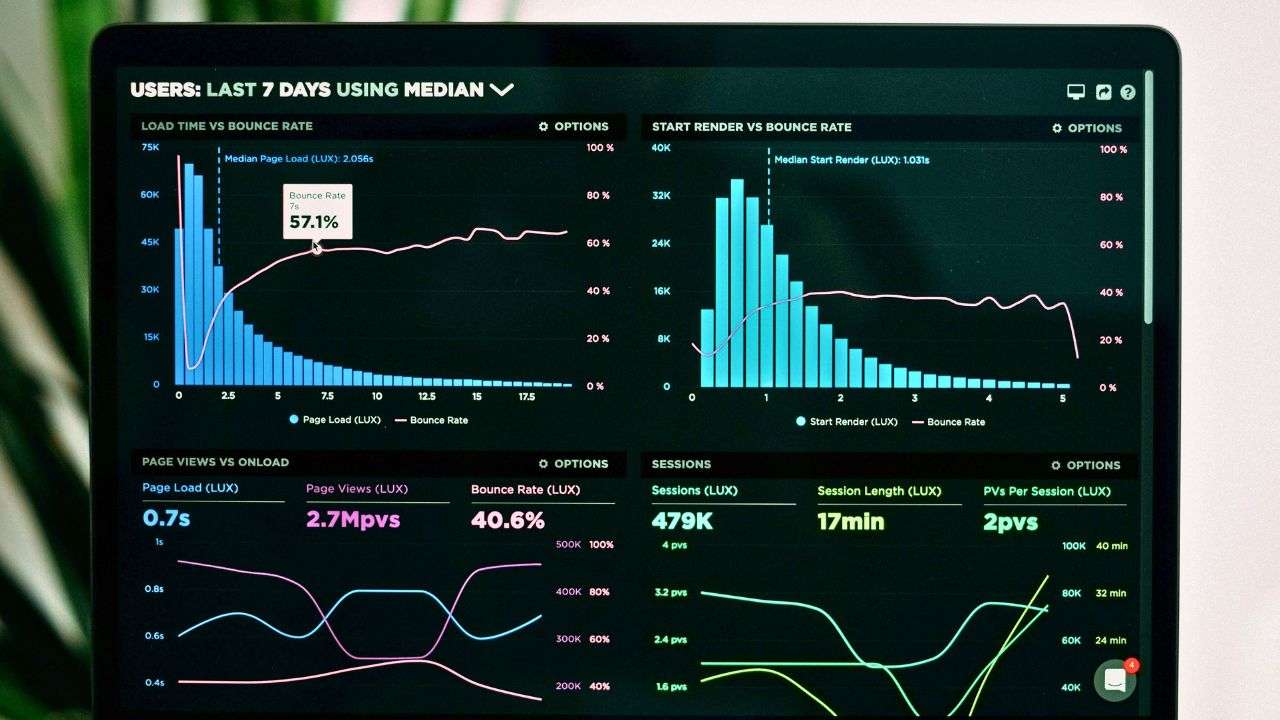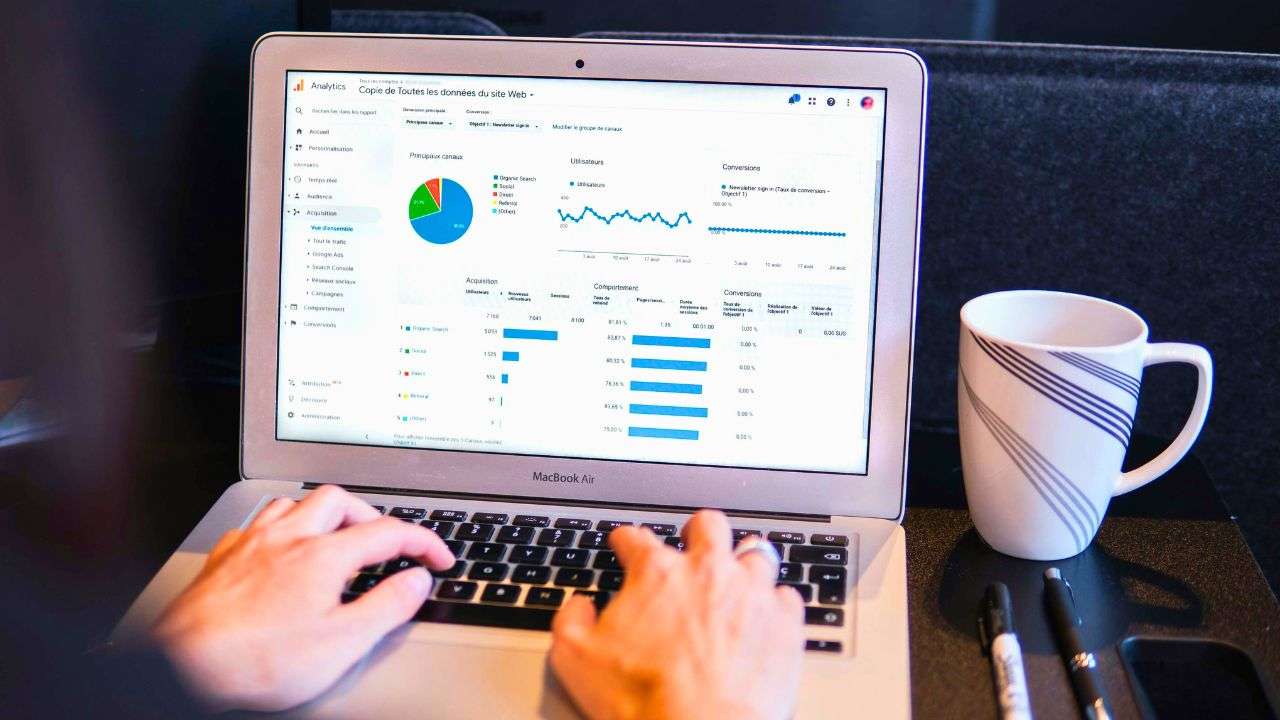Hey there, aspiring data analyst. Are you fascinated by the world of data and enthusiastic to turn that passion into a thriving career? Well, you’ve come to the right place. In this comprehensive guide, I’ll walk you through everything you need to know about becoming a data analyst in India.
The field of data analytics is booming, and there’s never been a better time to jump in. Companies across all industries are hungry for skilled professionals who can transform raw data into actionable insights. So, whether you’re a fresh graduate or looking to switch careers, this post will give you the roadmap to success.
Let’s dive in and explore the exciting journey of becoming a data analyst in India.
Introduction
Data analysis has become an integral part of decision-making processes in businesses of all sizes. As companies collect vast amounts of data, they need skilled professionals who can extract meaningful insights to drive strategic decisions. This has led to a surge in demand for data analysts across various sectors in India.
What is Data Analysis?
Data analysis involves collecting, cleaning, and interpreting data to uncover patterns, trends, and insights that can inform business strategies. It combines statistical techniques, programming skills, and domain knowledge to transform raw data into actionable information.
Types of Data Analyst Roles in India
As you start on your data analyst journey, it’s helpful to know about the different types of roles you might encounter:
- Business Analyst: Focuses on using data to improve business processes and decision-making.
- Financial Analyst: Analyzes financial data to guide investment decisions and financial planning.
- Marketing Analyst: Uses data to optimize marketing strategies and understand customer behavior.
- Healthcare Analyst: Analyzes healthcare data to improve patient outcomes and operational efficiency.
- Data Scientist: While not strictly a data analyst role, many analysts progress to become data scientists, working on more complex predictive models and machine learning algorithms.
Why Become a Data Analyst in India?
Now, you might be wondering, “Why should I choose data analytics as my career path?” Well, let me give you a few compelling reasons:
- High demand: Data analyst roles are among the fastest-growing and most sought-after positions across industries in India.
- Lucrative salaries: Even entry-level data analysts in India can earn competitive salaries, with plenty of room for growth.
- Exciting work: You’ll get to solve complex problems, uncover hidden insights, and make a real impact on business decisions.
- Career growth: With experience, you can progress to senior analyst, data scientist, or even managerial roles.
- Versatility: Your skills will be valuable across various sectors, giving you flexibility in your career choices.
- Continuous learning: The field is always evolving, so you’ll never stop growing and expanding your skillset.
Now that you’re excited about the prospects, let’s look at how you can turn this dream into reality!
Understanding the Data Analyst Role
Before diving into how to become a data analyst, it’s essential to understand what the role entails.
Core Responsibilities
- Data Collection and Management: Gathering data from various sources and ensuring its quality and integrity.
- Data Cleaning and Preparation: Processing raw data to remove errors, inconsistencies, and duplicates.
- Data Analysis and Interpretation: Applying statistical techniques and analytical tools to extract insights from data.
- Reporting and Visualization: Creating clear, visually appealing reports and dashboards to communicate findings effectively.
Skills Required
To excel as a data analyst, you’ll need a combination of technical and soft skills:
Technical Skills:
- Statistics and Mathematics: Understanding statistical concepts is crucial for data analysis.
- Programming Languages: Focus on learning Python and R, the two most popular languages for data analysis.
- SQL: This is essential for working with databases and querying data.
- Data Visualization: Tools like Tableau, Power BI, or matplotlib will help you create compelling visual representations of data.
- Excel: Advanced Excel skills are still valuable in many data analyst roles.
- Machine Learning (basic): Familiarity with fundamental machine learning concepts can set you apart.
Soft Skills:
- Analytical thinking
- Problem-solving
- Attention to detail
- Communication skills
- Business acumen
- Curiosity and continuous learning mindset
Educational Pathways to Becoming a Data Analyst
There are several routes to becoming a data analyst in India. Here are some popular educational pathways:

Relevant Academic Qualifications
- Bachelor’s Degrees:
- Statistics
- Mathematics
- Computer Science
- Economics
- Engineering (preferably with a focus on data or computer science)
- Master’s Programs and Specializations:
- M.Sc. in Data Science
- M.Tech in Big Data Analytics
- MBA with a specialization in Business Analytics
Certifications and Online Courses
For those looking to upskill or transition into data analysis, certifications and online courses can be valuable additions to your resume:
- Top Certifications in Data Analytics:
- Best Online Learning Platforms and Courses:
- Coursera
- edX
- Udacity
- DataCamp
Essential Technical Skills for Data Analysts
To become a successful data analyst, you’ll need to master several key technical skills:
Learning Programming Languages
- Python:
- Essential for data manipulation, analysis, and visualization
- Key libraries: pandas, NumPy, matplotlib, seaborn
- R:
- Popular for statistical computing and graphics
- Useful packages: dplyr, ggplot2, tidyr
- SQL:
- Crucial for querying and managing relational databases
Data Visualization Tools
- Tableau: Create interactive and shareable dashboards
- Power BI: Microsoft’s business analytics tool for data visualization
- Python libraries: matplotlib, seaborn, plotly for creating custom visualizations
Statistical Analysis and Machine Learning
- Descriptive statistics
- Inferential statistics
- Hypothesis testing
- Regression analysis
- Basic machine learning algorithms (e.g., clustering, classification)
Gaining Practical Experience
Theory alone isn’t enough to become a successful data analyst. You’ll need hands-on experience to apply your skills in real-world scenarios.

Internships and Entry-Level Jobs
- Finding the Right Internship Opportunities:
- Check company websites for internship programs
- Utilize job portals like Internshala, LinkedIn, and Naukri.com
- Attend job fairs and networking events
- Leveraging Entry-Level Roles for Skill Development:
- Look for junior data analyst or data associate positions
- Consider roles in data entry or business intelligence to gain relevant experience
Building a Portfolio
A strong portfolio is crucial for showcasing your skills to potential employers:
- Importance of a Strong Portfolio:
- Demonstrates your practical skills and problem-solving abilities
- Showcases your ability to work with real-world data
- Types of Projects to Include:
- Data cleaning and preprocessing projects
- Exploratory data analysis (EDA) projects
- Predictive modeling projects
- Data visualization dashboards
Networking and Community Engagement
Building connections in the data analysis community can open doors to opportunities:
- Joining Data Analyst Communities:
- Participate in online forums like Kaggle and Stack Overflow
- Join local data science meetup groups
- Attending Conferences and Meetups:
- Attend data science conferences like DataHack Summit and Analytics Vidhya’s DataScienceR
- Participate in hackathons and data analysis competitions
Developing Expertise and Specializations
As you gain experience, consider specializing in a particular area of data analysis:
Specialization Areas
- Business Analytics: Focus on using data to drive business decisions
- Financial Data Analysis: Specialize in analyzing financial markets and investment data
- Healthcare Data Analysis: Work with medical data to improve patient outcomes
- E-commerce and Retail Analytics: Analyze consumer behavior and sales data
Advanced Tools and Technologies
Stay updated with the latest advancements in data analysis:
- Machine Learning and AI in Data Analysis:
- Learn advanced ML algorithms and their applications
- Explore deep learning frameworks like TensorFlow and PyTorch
- Big Data Technologies:
- Familiarize yourself with Hadoop and Apache Spark for handling large datasets
- Cloud Platforms:
- Gain experience with cloud-based data analysis tools (e.g., AWS, Google Cloud, Azure)
Navigating the Job Market
Once you’ve developed your skills and gained some experience, it’s time to start your job search:

Job Search Strategies
- Utilize job portals:
- Naukri.com, LinkedIn, Indeed, and Glassdoor
- Leverage your network:
- Reach out to connections in the data analysis field
- Attend industry events and job fairs
- Follow companies of interest:
- Keep an eye on their career pages for openings
How to Craft a Standout Resume
Your resume is often the first impression you make on potential employers:
- Highlight relevant skills and experiences
- Quantify your achievements wherever possible
- Include links to your portfolio and GitHub profile
- Tailor your resume to each job application
Writing an Effective Cover Letter
A well-crafted cover letter can set you apart from other candidates:
- Demonstrate your understanding of the company and role
- Highlight specific experiences that make you a great fit
- Show enthusiasm for the position and company
Preparing for Interviews
Thorough preparation is key to acing data analyst interviews:
- Common Data Analyst Interview Questions:
- Be prepared to discuss your projects and problem-solving approach
- Practice explaining complex concepts in simple terms
- Practical Tips for Acing Technical Interviews:
- Review fundamental statistical concepts
- Be ready to write SQL queries and explain your thought process
- Practice solving data analysis problems under time constraints
Negotiating Job Offers
Once you receive an offer, it’s important to negotiate effectively:
- Understanding Salary Expectations in India:
- Research average salaries for data analysts in your location and industry
- Consider the total compensation package, including benefits and growth opportunities
- Negotiation Tips for Entry-Level and Experienced Data Analysts:
- Highlight your unique skills and experiences
- Be prepared to justify your salary expectations with market research
Career Growth and Advancement
A career in data analysis offers numerous opportunities for growth:
Career Pathways
- From Data Analyst to Senior Analyst:
- Take on more complex projects and mentor junior team members
- Develop deeper expertise in specific analytical techniques or industries
- Transitioning to Data Scientist Roles:
- Build advanced machine learning and statistical modeling skills
- Gain experience with big data technologies and cloud platforms
Continuous Learning and Skill Development
The field of data analysis is constantly evolving, making ongoing learning crucial:
- Staying Updated with Industry Trends:
- Follow data science blogs and publications
- Attend webinars and online conferences
- Pursuing Advanced Certifications and Degrees:
- Consider specialized certifications in areas like machine learning or big data
- Explore part-time or online advanced degree programs in data science
Challenges and Opportunities in the Indian Job Market
Understanding the landscape of data analysis in India can help you navigate your career more effectively:

Overcoming Challenges as a Data Analyst in India
- High competition for entry-level positions
- Keeping up with rapidly evolving technologies
- Bridging the gap between academic knowledge and practical skills
Emerging Opportunities in the Field
- Growing demand across various sectors (e.g., e-commerce, fintech, healthtech)
- Increasing adoption of AI and machine learning in businesses
- Rise of data-driven decision-making in traditional industries
Summary: Your Path to Becoming a Data Analyst in India
Becoming a data analyst in India requires dedication, continuous learning, and practical experience. Here’s a recap of the key steps:
- Gain a strong educational foundation in statistics, mathematics, or computer science
- Develop essential technical skills in programming, data visualization, and statistical analysis
- Build practical experience through internships, projects, and entry-level positions
- Create a compelling portfolio showcasing your skills and problem-solving abilities
- Network and engage with the data analysis community
- Stay updated with industry trends and continue learning throughout your career
Final Thoughts
Becoming a data analyst in India is an exciting journey filled with learning, growth, and endless possibilities. The road may seem challenging at times, but with dedication, continuous learning, and a passion for data, you can build a rewarding career in this dynamic field.
Remember, every expert was once a beginner. Take it one step at a time, stay curious, and never stop learning. The world of data is waiting for you to make your mark!
Are you ready to start on this exciting journey? The future of data analytics in India is bright, and you could be a part of it. So, roll up your sleeves, dive into those datasets, and start your journey to becoming a skilled data analyst today!
Good luck, and happy analyzing.
Frequently Asked Questions (FAQs)
Q: What is the Average Salary of a Data Analyst in India?
A: The average salary for a data analyst in India ranges from ₹3.5 lakhs to ₹11 lakhs per annum, depending on experience, location, and industry. Entry-level positions typically start around ₹3-5 lakhs, while experienced analysts can earn ₹8-15 lakhs or more.
Q: Do I Need a Master’s Degree to Become a Data Analyst?
A: While a master’s degree is not always required, it can give you a competitive edge, especially for more advanced positions. Many successful data analysts have bachelor’s degrees in relevant fields and supplement their education with certifications and practical experience.
Q: What are the Top Companies Hiring Data Analysts in India?
A: Many companies across various sectors hire data analysts in India. Some top employers include:
- IT giants: TCS, Infosys, Wipro
- E-commerce: Amazon, Flipkart, Myntra
- Finance: HDFC Bank, ICICI Bank, American Express
- Consulting: Deloitte, EY, KPMG
- Tech startups: Ola, Swiggy, Zomato
Q: How Long Does it Take to Become a Data Analyst?
A: The time it takes to become a data analyst can vary depending on your background and learning pace. With a relevant bachelor’s degree, you can potentially land an entry-level position within 6-12 months of focused skill development and project work. For those transitioning from other fields, it may take 1-2 years of dedicated learning and practice.
Q: What are the Common Challenges Faced by Data Analysts?
A: Some common challenges include:
- Dealing with messy or incomplete data
- Communicating complex findings to non-technical stakeholders
- Keeping up with rapidly evolving tools and technologies
- Balancing data accuracy with business needs and time constraints
- Ensuring data privacy and ethical use of information
By preparing for these challenges and continuously improving your skills, you’ll be well-positioned for a successful career as a data analyst in India’s growing data-driven economy.
